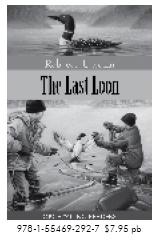Colette and the Silver Samovar (12 page)

The party was in full swing.
Two months after she woke up, my mother finally came home. Now she was sitting in the living room in front of the fireplace at her parents' house. Mr. and Mrs. Singh, Auntie Graves, and Mamanaie and Babaie, my grandmother and grandfather from Iran, were there. So were my mother's parents and my great-grand-father with the exploding freckles. Ethelberta held Amos on her knee as Mr. Murray sang an old Scottish tune. My father's parents talked quietly to Mr. Singh.
After I passed around a tray of food, I asked my father to come outside with me.
But first I kissed my mother's cheek. “We'll be right back,” I told her. She nodded. She still had trouble speaking, but the doctors said that if she practiced, she was going to talk and walk just like she did before. Before we left, I went over to my grandparents from Iran and told Mamanaie how pretty she looked in her golden shawl. She patted my head, and her bracelets jangled. Then she smiled.
“You very pretty too,” she said.
I tugged my father's hand, leading him down the path to the gazebo at the very edge of the ravine. The darkness came earlier every day. Soon it would be Christmas.
“What is it, Colette?” Dad asked as we huddled together. “Why did you want to come out here?”
Across the yard, we could see the brightly lit windowsâlittle golden squares, like many pictures.
There was Ethelberta, tapping her foot in time with the music.
There was Grandmama, polishing a delicate china teacup before pouring tea from the glowing silver samovar that Mr. Murray had returned to my father.
There was Grandpapa talking to my great-grandfather.
There were my father's parents, sitting together, holding hands and smiling tentatively at all the commotion and trying to understand the English conversation.
But most special of all, there was my mother, sitting in a halo of light, smiling at everyone. I cleared my throat. It was so hard to believe that my whole family was in the same room.
“There is something I've been wondering about ever since you went away,” I said.
“What's that?” my father asked.
“I want to know the end of the story. The story of
Bahram and the Snake Prince
.”
“You mean the story I was telling two months ago?”
I nodded. “Did Bahram and his mother starve?”
“Well,” said my father, “where did I leave off?”
“Bahram had just spent his last hundred dirhams to save the snake,” I reminded him.
“Oh, yes,” my father said. “I hope I can remember what happens next.”
“Dad!” I said.
He laughed. “Oh, now I remember. It turned out that the snake did not want Bahram to suffer for his kindness, and so he sent Bahram to see his father, the King of Snakes. The snake told Bahram to ask his father for a great emerald ring on which is carved a magic sign of Suleiman, the great King of Kings.”
“Wow!” I said.
“Exactly,” my father replied. “Bahram did what the snake told him to do, and the King of Snakes gave him the ring of Suleiman, but he warned him that the ring must only be given to a person with a clean heart, because if an unworthy person held the ring, Ahriman, the Lord of Evil would enter his heart and turn the world upside down.”
Inside the brightly lit dining room, Mr. Murray and Ethelberta burst into happy laughter. I turned my eyes back to my father.
“Bahram was nervous, but he knew his heart was pure, so he accepted the ring. Only then did Bahram learn of the ring's powers. The Snake Prince took him aside and told him that if the owner of the ring was to rub the emerald, a giant slave would appear and grant any wish.”
“I hope Bahram uses the ring wisely!” I said, shivering.
“Perhaps we should go inside,” said my father.
“No!” I cried. “Please, Dad, finish the story.”
“The first thing Bahram asked for was food,” my father said. “And then he told his mother that he was going to ask the slave for a giant castle to replace their mud hut.”
“Oh,” I said. I imagined a shining castle rising high into the sky.
“But his mother wanted to stay in the hut, where she had so many memories,” my father said.
I understood that. I would hate to leave our apartment, where the night sounds kept me company and where my slice of the sky was like a new picture every time I went to bed.
“So Bahram wished for a castle to rise up right next door to his mother's hut,” said my father. “As time went by, he gained everything he ever wanted: fine horses, fine clothes and even a beautiful princess for a wife.”
“What happened next?” I asked. I saw trouble ahead. I always figure out how a story ends before it does. My mother tells me to let myself be surprised, but I can't help it. I think it's the writer in me.
“Another prince who had wanted to marry the princess was angry that a lowly cocoon peeler's son had won her hand. So he sent an evil woman to spy on Bahram and his wife.”
I knew it! I am never wrong. I knew something bad was going to happen.
“And so it was,” continued my father, “that the evil woman tricked the princess into revealing that Bahram's wealth came from the ring of Suleiman. And, a few days later, the old woman took the ring from its hiding place and gave it to the jealous prince.”
I shook my head. The princess should have known better.
“As soon as the jealous prince put the ring on his finger, he wished for the cocoon peeler's son to lose everything, and in the blink of an eye nothing remained of Bahram's wealth. The jealous prince even claimed the princess as his bride. Bahram's heart was broken, but his mother said, âWhat the wind gives, the wind takes away.' Then she gave him a handful of dirhams and told him to go to town and buy some cocoons.”
“Is that how the story ends?” I asked. “Just like it began?”
My father laughed. “Not quite,” he said. “Bahram did his mother's bidding, but got to town too late to buy cocoons, as the sun had already set. He sat down to rest, and while he was leaning against the town wall, the cat, the dog and the snake whom he had saved came to him and asked why he was so sad. He told them how the ring had been taken from him and how he had lost his beloved wife and all his possessions.”
“I hope they help him,” I said.
“Well,” said my father, “that's exactly what happened. The Snake Prince said to the cat and the dog that Bahram had saved their lives when they were helpless and that now they must help him in return. And the cat agreed. She said, âI shall do it, for kindness is always remembered.' And the dog said, âI shall do it also. For good must be met with good.'”
I leaned closer to my father. He stroked my cheek with his finger. “Sometimes these old tales teach us many truths about life, do you not think so?” I looked at Ethelberta and Mr. Murray. They were dancing now, an old-fashioned waltz. My mother's face shone like a beacon, and Grandmama was holding Grandpapa's hand. My grandparents from Iran sipped tea while they smiled at the dancers. Grandmama had even asked me to teach her how to say
Welcome
in Farsi, the language of Iran.
In the dark night, I nodded.
My father followed my gaze and spoke softly. “Yes. I see it too. It is some kind of miracle, I think.”
“Finish the story, Dad.”
“Yes. Yes. So, the cat and the dog snuck into the palace of the jealous prince and found the ring and returned it to Bahram. After he had reclaimed his wife, he threw the ring deep into the ocean, where it remains to this day.”
“He threw away the ring?” I asked.
“Yes,” answered my father.
“But why?”
“Because he had true happiness. He knew that family was the most important thing of all, and he realized that something so powerful as the ring should never fall into the wrong hands, the hands of those who would turn the world upside down.”
I sniffed a little. I always hate it when a story comes to an end. I think it is because I am going to be a writer. And writers hate to see stories end.
“Come now,” my father said. He pointed at the window. “Your mother is beckoning to us to join the family.”
Sure enough. My grandfather from Iran had wheeled my mother's chair to the window. She was looking out into the night trying to see us, but somehow looking right into our eyes. I imagined her saying to my grandfather, “Isn't it funny how things turn out?”
I squeezed my dad's hand and said, “You're right. The family is waiting.”
He smiled and shook his head as if he was still trying to figure out how it was that all of us were together at last.
One day, I thought, when I write it all down, I'll explain it to him.
Bahram and the Snake Prince
is an ancient Persian folktale, retold many times. I wish to acknowledge the book
Persian Folk and Fairy Tales
retold by Anne Sinclair Mehdevi as a wonderful source of ancient wisdom and a great help in my research into Persian culture. I also want to thank my agent, Hilary McMahon, for her comments and current wisdom. And special thanks to my editor, Sarah Harvey, who was always thoughtful and insightful with her editorial pencil.

Nancy Belgue is the author of many books for young people, including
Casey LittleâYo-Yo Queen
and
The Scream of the Hawk
. Nancy's writing has appeared in magazines in both Canada and the United States. She has acted in television commercials, training videos and documentaries. She is Managing Editor of the magazine
OUR HOMES (Windsor &
Essex County)
and also works part-time as a library assistant.


Spending Christmas holidays in the wilderness with his ex-con Aunt Mag is not Evan's idea of a good time. What's worse is that everyone he meetsâeven his new friend Cedarâis making a big deal about a loon that is hanging around on the lake. Why should Evan care about a dumb bird? When he discovers that the loon will die without help, he realizes he does care, but rescuing the wild bird turns out to be a whole lot harder, and more dangerous, than he expected.

